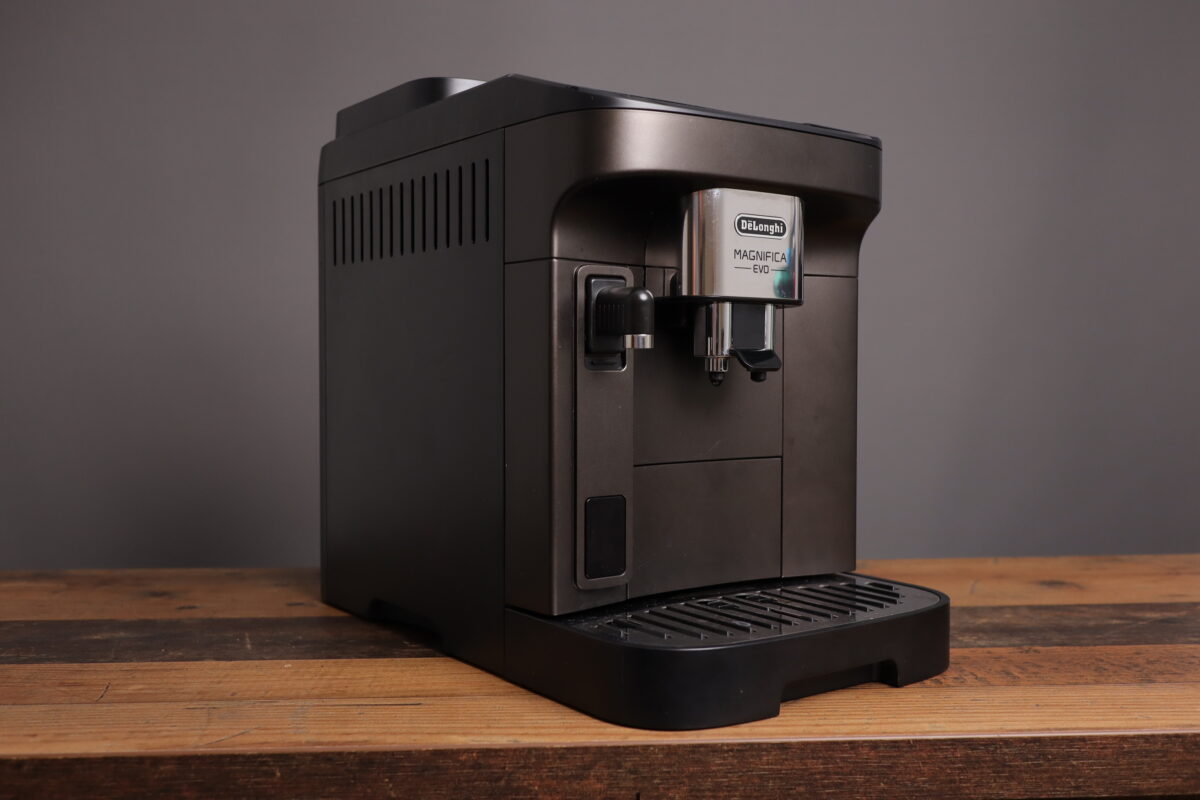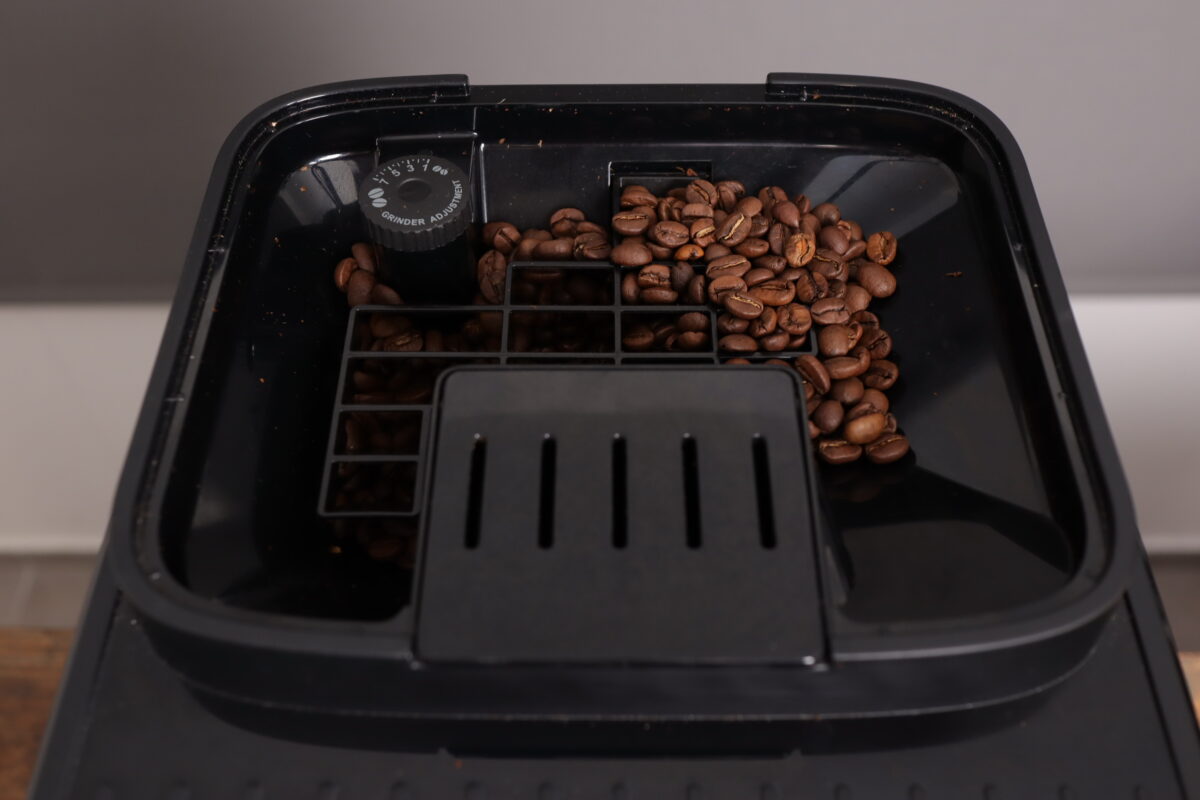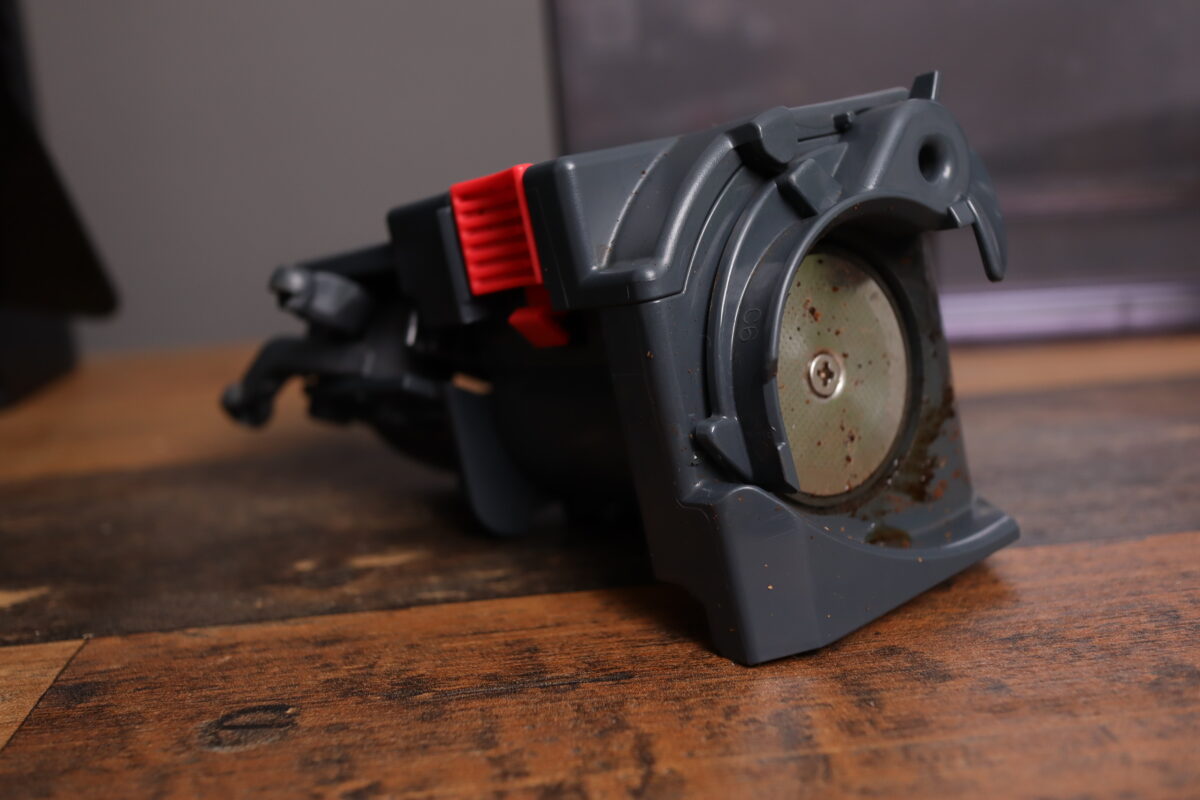#1: DeLonghi Magnifica Evo
- Simple and intuitive controls for easy use.
- Manual milk frother for precise frothing control.
- Compact and durable design.
- Easy to clean and maintain.
- Consistently great espresso and cappuccino quality.
#2: Philips 4300
- Sleek touchscreen interface for easy navigation.
- Offers more drink customization options.
- Automatic milk frothing system for convenience.
- Modern design with a variety of drink options.
- Includes preset profiles for multiple users.
Upgrading from a capsule-based coffee maker to a fully automatic espresso machine felt like stepping into a whole new world of coffee craftsmanship. After years of relying on pre-measured pods, I wanted a machine that could bring café-quality coffee into my home while offering flexibility, ease of use, and minimal cleanup. This led me to compare two well-known contenders: the DeLonghi Magnifica Evo and the Philips 4300. Both machines boast excellent features, but in my experience, the Magnifica Evo emerged as the better choice for my needs.
Why I Chose to Upgrade to a Superautomatic Machine
For a long time, I was satisfied with my simple capsule machine. But as I explored different types of coffee, I realized I wanted more control over my brews. I wanted freshly ground coffee beans, the ability to adjust strength, and—most importantly—a system that made milk-based drinks like lattes and cappuccinos as good as those from my local café. That’s what initially drew me to superautomatic machines like the DeLonghi Magnifica Evo and Philips 4300. These machines promised to do it all—grind, brew, and froth—with just a few presses of a button.
The Grinder Difference: DeLonghi Magnifica Evo vs. Philips 4300
One of the most critical aspects of any espresso machine is its grinder. After all, freshly ground coffee is what sets a true espresso apart from a standard drip brew. The DeLonghi Magnifica Evo has a stainless steel conical burr grinder with 13 adjustable settings. This level of precision allowed me to tweak the grind size based on the coffee beans I was using, ensuring optimal flavor extraction every time.
The Philips 4300, on the other hand, also offers a ceramic burr grinder with 12 settings. While ceramic grinders are known for being durable and quiet, I noticed the grind consistency wasn’t as fine-tuned as what the Magnifica Evo produced. This could explain why the Philips occasionally yielded slightly bitter shots, even after multiple adjustments.

How DeLonghi Magnifica Evo Makes Milk-Based Drinks Shine
As someone who enjoys cappuccinos as much as I do a good espresso shot, the milk system was a huge deciding factor. The Magnifica Evo’s LatteCrema system is a standout feature. The foam it produced was consistently thick, creamy, and the perfect temperature—ideal for lattes and cappuccinos. What’s more, I loved that the milk container could be stored in the fridge between uses, reducing waste and keeping things fresh.
The Philips 4300’s LatteGo system is also innovative, with its quick-attach milk container. However, I found the foam it produced lighter and less textured. It worked fine for casual milk drinks, but for anyone who enjoys experimenting with latte art or prefers a barista-style cappuccino, the Magnifica Evo clearly had the edge.

Real-World Usability: A Day in the Life With the Magnifica Evo
I start my mornings with an espresso shot, and I loved how quick and reliable the Magnifica Evo was. The machine heats up in under a minute, and the process of grinding and brewing is seamless. The touch-sensitive buttons are intuitive, and once you’ve dialed in your preferences (like strength and volume), it becomes almost second nature to prepare your favorite drink.
On weekends, when I have more time, I enjoy a cappuccino or even a flat white. The machine's milk frothing system worked flawlessly every time, and the ability to adjust the milk-to-espresso ratio gave me complete control over the drink's texture and taste.
Cleaning and Maintenance: A Non-Negotiable Feature for Me
Let’s be honest: no one wants a machine that’s a pain to clean. The DeLonghi Magnifica Evo won me over with its automated cleaning cycle and removable parts. The drip tray, brew group, and milk system are all easy to disassemble and rinse. Even the coffee grounds container is designed with convenience in mind.
The Philips 4300 offers similar cleaning capabilities but requires more frequent attention for its milk system. Since the LatteGo system doesn’t have a refrigerated container, any leftover milk must be removed immediately, or you risk residue buildup. Over time, this extra step felt more like a chore than a convenience.
Customization and Versatility for Different Preferences
One area where the Philips 4300 slightly edges out the Magnifica Evo is its ability to save multiple user profiles. If you’re in a household where everyone has different preferences, the 4300’s profiles might be a lifesaver. That said, since I’m the primary coffee drinker in my home, I found the Magnifica Evo’s customization features more than adequate. I could easily adjust coffee strength, water volume, and temperature on the fly.
Noise Levels: Quiet Mornings Are Better Mornings
I was pleasantly surprised by how quiet the DeLonghi Magnifica Evo was during operation. The grinder, while not completely silent, produced a softer sound than I anticipated, which is a bonus for early mornings when the rest of the household is still asleep. The Philips 4300, on the other hand, was noticeably louder, especially during the grinding process. This might not be a dealbreaker for some, but for me, it’s a small detail that enhances the overall experience.
Who Should Consider the DeLonghi Magnifica Evo?
While both machines are capable of producing great coffee, the DeLonghi Magnifica Evo is better suited for individuals or smaller households who prioritize:
- Consistent coffee quality: The espresso shots and milk froth are exceptional.
- Ease of use: The intuitive controls make brewing coffee simple and straightforward.
- Low maintenance: Automated cleaning and easy-to-remove parts save time and hassle.
- Compact design: Its sleek, space-saving footprint works well in smaller kitchens.
Who Might Prefer the Philips 4300?
That’s not to say the Philips 4300 doesn’t have its audience. It might be a better fit if you:
- Need user profiles: Great for households with diverse coffee preferences.
- Prefer more advanced customization: The digital display offers additional settings for tweaking drinks.
- Appreciate ceramic grinders: They’re durable and operate slightly cooler, which can benefit certain beans.

Final Thoughts: Why the DeLonghi Magnifica Evo Stands Out
In the end, choosing between the DeLonghi Magnifica Evo and the Philips 4300 comes down to personal preferences and priorities. For me, the Magnifica Evo struck the perfect balance between functionality, performance, and value. Its superior milk frothing system, consistent espresso quality, and ease of maintenance make it a standout choice for anyone looking to bring café-quality coffee into their home without the learning curve of a more advanced machine.
While the Philips 4300 is a solid option with added features like user profiles and advanced customization, it didn’t quite match the overall experience I had with the Magnifica Evo. If you’re in the market for a reliable, high-performing superautomatic espresso machine that delivers consistently excellent results, I highly recommend giving the DeLonghi Magnifica Evo a closer look.
Frequently Asked Questions
Q: How do the DeLonghi Magnifica Evo and Philips 4300 compare in terms of espresso quality?
A: The DeLonghi Magnifica Evo generally produces richer, fuller-bodied espresso shots with a velvety crema. The Philips 4300 also brews good espresso, but it can sometimes result in slightly bitter shots, depending on the grind and settings.
Q: Which machine has a better milk frothing system?
A: The DeLonghi Magnifica Evo’s LatteCrema system is more consistent in producing dense, creamy foam ideal for lattes and cappuccinos. The Philips 4300’s LatteGo system is convenient but produces lighter foam with less texture.
Q: Can I adjust the grind size on both machines?
A: Yes, both machines allow you to adjust the grind size. The Magnifica Evo has a stainless steel conical burr grinder with 13 settings, while the Philips 4300 has a ceramic burr grinder with 12 settings.
Q: Are these machines easy to clean?
A: Both machines offer automated cleaning cycles and removable parts for maintenance. However, the DeLonghi Magnifica Evo’s LatteCrema system is easier to clean and store in the fridge compared to the Philips 4300’s LatteGo system, which requires immediate cleaning after use.
Q: Which machine is quieter during operation?
A: The DeLonghi Magnifica Evo is quieter, especially during the grinding process. The Philips 4300’s grinder is noticeably louder, which might be a consideration for quiet environments.
Q: Can I save user profiles on these machines?
A: The Philips 4300 allows you to save multiple user profiles, making it ideal for households with varied preferences. The DeLonghi Magnifica Evo does not have this feature but offers customizable settings for strength, temperature, and volume.
Q: What is the price difference between the two machines?
A: The DeLonghi Magnifica Evo is typically more affordable than the Philips 4300, making it a better value for those who prioritize performance over extra features like user profiles.
Q: How much space do these machines take up?
A: The DeLonghi Magnifica Evo is more compact and fits well in smaller kitchens. The Philips 4300 has a bulkier design and requires more counter space.
Q: Are these machines suitable for beginners?
A: Yes, both machines are user-friendly, but the DeLonghi Magnifica Evo has a simpler interface that’s easier for beginners to navigate. The Philips 4300 offers more advanced features, which might be overwhelming for first-time users.
Q: Which machine is better for making a variety of drinks?
A: Both machines can make a wide range of drinks, but the DeLonghi Magnifica Evo excels in milk-based beverages like cappuccinos and lattes due to its superior frothing system. The Philips 4300 offers more customization options for espresso-based drinks.
